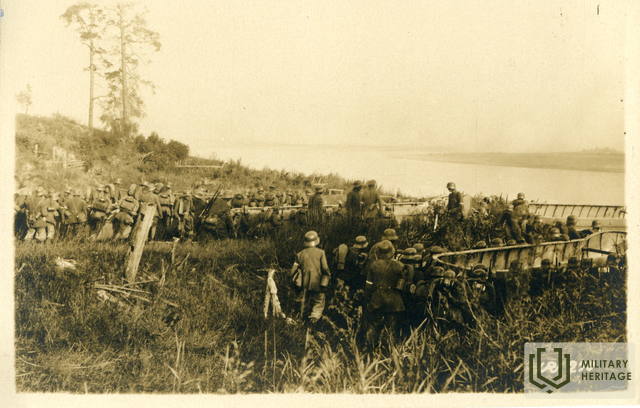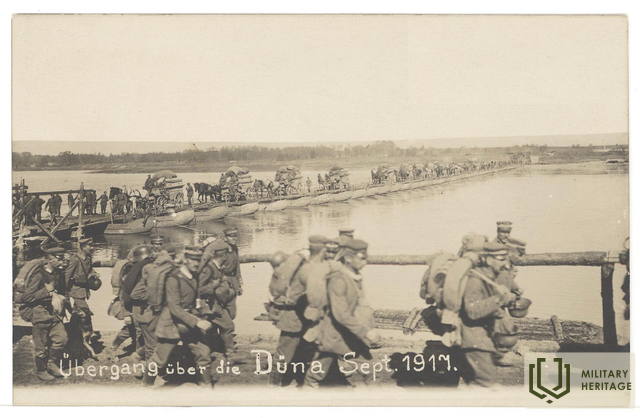Battle of the Little Jugla River/ Riga Operation

The narrator describes his impressions of the beginning of the Riga operation, when the German army artillery begins shelling the Russian army positions. He describes the chaos that prevails in the Russian army and the mood of the Latvian riflemen before the battles.
“Early in the morning of September 1, we were awakened by a fierce and continuous artillery barrage on the Daugava side of the Dunonis. There was no doubt – the battle had begun there. We hurriedly saddled our horses and headed for the Ropaži Manor. Riflemen were gathering at individual country houses. Excitement. News from the army command had arrived at headquarters that the Germans had tried to cross the Daugava, but had been repulsed. However, this news could not be believed. Time passed and the hollow bank of the Dunonis did not recede. Refugees had appeared on the roads, saying that the Germans were already on this side of the Daugava. Wounded soldiers and fleeing Russian soldiers were coming, without weapons and some even without hats. Our order was to arrest the deserters and turn them back. Vain efforts. The number of those fleeing was increasing every hour, as were the wounded and those poisoned by gas.q In the Riflemen excitement – why aren’t we being sent to the front, because it’s boiling like a witch’s cauldron there. The wounded say that after extremely fierce fire, including with gas shells, the Germans have crossed the Daugava and forced the Russian troops to retreat. But the army headquarters is still reporting that the German attacks have been successfully repelled. There’s nothing more to wait for. Semigallian companies are starting to gather on the road. Ammunition carts are arriving. Riflemen are hastily taking cartridges and hand grenades from them. An unusual sight – from the direction of Ikšķile, scattered fighters of the defeated Russian army are coming, soldiers who have stumbled in army vehicles are driving. Everyone is just hurrying away, but here, in tight rows, the riflemen are standing and waiting for the order to go forward. A few refugee wives have gathered at the end of the pub, looking seriously and sadly at us – Latvian soldiers. A young girl, having gathered dahlia flowers, comes and begins distributing them to the closest archers.”
“Memories of Kārlis Baltgailis”, pp. 13 – 17 (Latvian War Museum Fund). Available: http://latviesustrelniekusaraksts.lv/Kaujas_darbiba/Book_3.html





